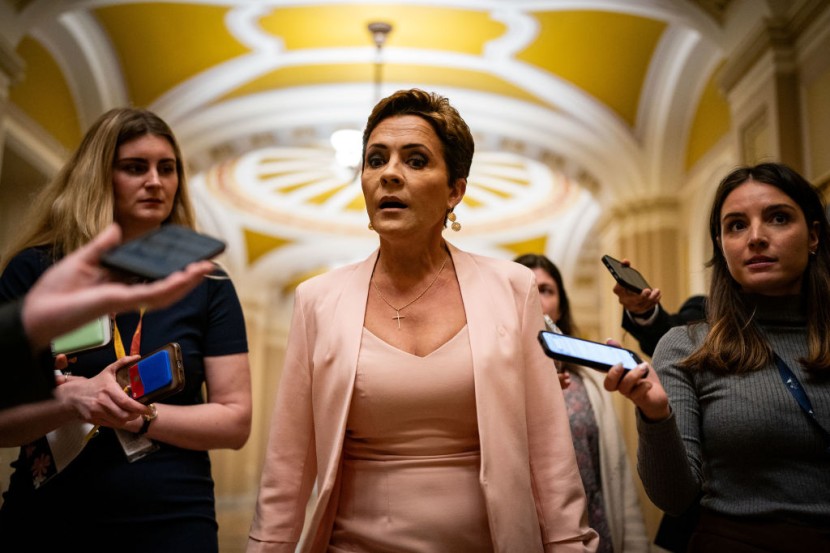
The Supreme Court declined Monday to take up a case brought by Republican Kari Lake over the use of voting machines in Arizona elections.
Lake filed the lawsuit seeking to ban the machines during her campaign for Arizona governor in 2022. She ended up losing the election.
She sued the Arizona Secretary of State and the boards of supervisors of Maricopa and Pima Counties. Two lower courts had already thrown out the case.
Fellow Republican candidate Mark Finchem was also part of the suit.
The suit asked the court to block electronic voting machines in the state, questioning their accuracy and reliability, the Hill reported.
It claimed without evidence that Arizona's voting machines were "hacked" and "manipulated" in the 2020 election. it also claimed there were discrepancies in Maricopa County's vote count.
The suit relied in part on testimony from Donald Trump supporters who led a sharply discredited review of the election, the Associated Press reported.
Among them was Doug Logan, the CEO of Cyber Ninjas, who oversaw the effort described by supporters as a "forensic audit." But Logan's review was riddled with issues, including the whisking away of thousands of votes to an isolated Montana cabin.
"None of Plaintiffs' allegations supports a plausible inference that their individual votes in future elections will be adversely affected by the use of electronic tabulation, particularly given the robust safeguards in Arizona law, the use of paper ballots, and the post-tabulation retention of those ballots," the 9th Circuit wrote when it rejected the case.
The Supreme Court did not comment on its rejection of the suit, which allows the 9th Circuit ruling to stand..
"We are obviously disappointed that the U.S. Supreme Court decided not to review the decisions of the Arizona district court and the Ninth Circuit, and order that our challenge to the 2022 election procedures be heard on the merits," Kurt Olsen, attorney for the lawsuit, said in a statement.
© 2025 HNGN, All rights reserved. Do not reproduce without permission.









